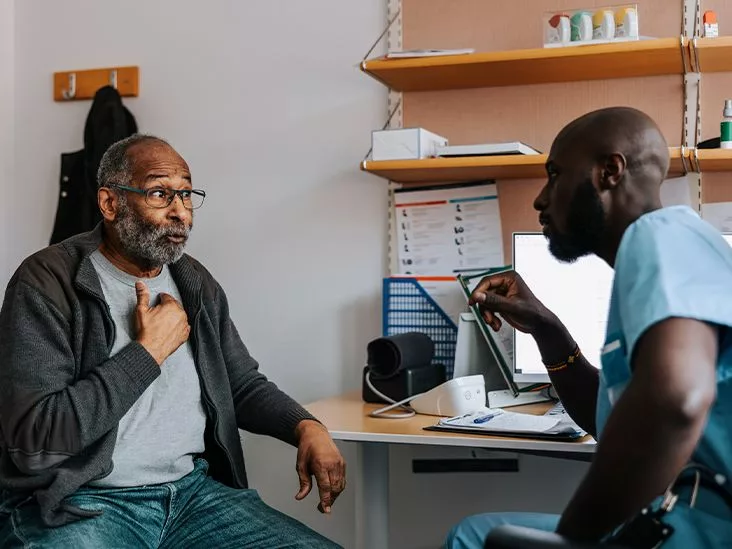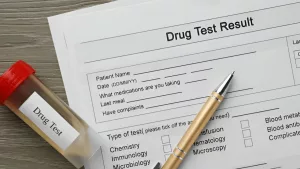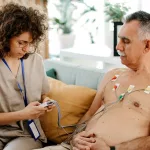Ever walked into a doctor’s office and felt the “What am I supposed to say?” panic creeping in? You’re not alone. The truth is, most of us have stared at the blank space on a clinical form and wondered which questions will pop up next. In this friendly guide I’ll walk you through the exact questions you’re likely to hear, share practical exam preparation tips, and even sprinkle in a few real‑life stories so you feel ready, relaxed, and in control the next time you sit down for a check‑up.
What Happens
Before we dive into the list of questions, let’s set the scene. A physical exam usually starts with a quick chat about why you’re there, followed by a systematic look‑over—vitals, heart, lungs, abdomen, and a quick “head‑to‑toe” sweep. The doctor’s goal is simple: gather clues (both spoken and observed) to piece together a health picture. Think of it like a detective gathering evidence; the better the clues, the clearer the case.
According to Healthline, a typical exam lasts about 15–30 minutes, and the question‑answer portion usually takes 5–10 minutes. Knowing what to expect removes a lot of mystery and lets you focus on what matters most—your health.
Common Questions
Below is a handy table that highlights the most frequent “doctor interview questions” you’ll encounter. Use it as a quick reference or even print it out for your next visit.
| System | Typical Question | Why the Doctor Asks It | How to Answer Confidently |
|---|---|---|---|
| General Health | How have you been feeling overall? | Establishes a baseline & flags red‑flags. | Give a brief summary: “I feel well, but I’ve had occasional fatigue for the past two weeks.” |
| Lifestyle | Do you exercise, smoke, or drink? | Identifies modifiable risk factors. | Be honest: “I jog three times a week, don’t smoke, and have a glass of wine on weekends.” |
| Med‑History | Are you taking any meds or supplements? | Checks for drug interactions. | List everything, even over‑the‑counter pills; bring the bottle if you can. |
| Family History | Any illnesses run in your family? | Screens for hereditary conditions. | Specify: “My mother has hypertension, and my grandfather had colon cancer.” |
| Cardiovascular | Any chest pain or shortness of breath? | Targets heart and lung issues. | Use OPQRST (Onset, Provocation, Quality, Radiation, Severity, Time). Example: “Shortness of breath after climbing stairs, started three months ago, mild, no radiation.” |
| Review of Systems | Any headaches, rashes, bowel changes? | Completes the head‑to‑toe assessment. | Answer “yes” or “no”; if yes, add a quick detail. |
Prep Tips
Now that you know the questions, let’s arm you with a pre‑visit checklist that turns anxiety into confidence. Feel free to adapt it to your personal needs.
1. Gather Your Paperwork
- Current medication list (prescription, OTC, herbal).
- Recent lab results or imaging reports.
- Vaccination record.
- Any device cards (pacemaker, insulin pump).
2. Write a One‑Sentence Health Summary
Imagine you’re introducing yourself to a new friend: “I’m a 38‑year‑old software engineer with mild asthma and a family history of high blood pressure.” This concise snapshot helps the clinician focus on what matters most.
3. Practice Out Loud
It may feel silly, but rehearsing answers in front of a mirror (or with a friend) shortens brain‑freeze moments. You’ll sound natural, and the doctor will appreciate the clarity.
4. Dress for Comfort
Wear something easy to change out of (a short‑sleeve shirt, loose pants). It speeds up the physical part and signals you’re ready to cooperate.
5. Bring a List of Questions
Whether you’re curious about cholesterol levels or a new vaccine, write them down. Turning the exam into a two‑way conversation shows you’re engaged.
These steps double as excellent “exam preparation tips” and also give you a feeling of ownership over the process.
Benefits & Risks
Sharing information with your doctor isn’t just a formality—there are real pros and cons that deserve a balanced view.
Benefits
- Early detection: Honest answers can surface hidden conditions before they become serious.
- Personalized care: Tailored treatment plans depend on accurate data.
- Stronger relationship: Transparency builds trust, making future visits smoother.
Risks
- Over‑sharing irrelevant details: It can cloud the clinician’s focus.
- Privacy concerns: Keep sensitive info (e.g., mental health) within a safe, trusted environment.
The key is to strike a balance—share what matters, but stay concise. According to Amboss, a focused history improves diagnostic accuracy and shortens appointment time.
Real Stories
Story 1: The Missed Thyroid Clue
Jenny, a 45‑year‑old teacher, thought her occasional fatigue was “just stress.” She left a question about tiredness off her answer sheet. Two months later, her doctor caught a subtle thyroid imbalance during a routine blood draw. Jenny now credits a simple follow‑up question for catching it early.
Story 2: The Life‑Saving Medication List
Mark, a 62‑year‑old retired mechanic, brought his printed medication list to a pre‑surgery visit. The surgeon noticed an over‑the‑counter sleep aid that could interfere with anesthesia. The drug was paused, preventing a potentially dangerous reaction. Mark’s story highlights how a tiny piece of paperwork can be a lifesaver.
Both anecdotes illustrate why preparation matters. You don’t need a medical degree—just a little forethought and honesty.
Follow‑up Q&A
After you’ve tackled the main interview, a few lingering questions often pop up. Below are concise answers you can keep handy.
Should I fast before the exam?
Only if your doctor has ordered blood work that requires fasting (usually lipid panels). Otherwise, a normal breakfast is fine.
Can I bring a friend?
Absolutely! A companion can help you remember details, provide emotional support, and ask clarifying questions you might forget.
What if I forget something?
Don’t panic. Bring a written list—if you can’t recall a medication name, describe its purpose, color, or shape. Most clinicians will ask follow‑up questions anyway.
How long does the Q&A portion usually take?
Typically 5–10 minutes, but it can stretch longer if you have a complex history or multiple concerns.
Further Resources
If you want to explore deeper, these trusted sources dive into the science behind the exam and give additional tips:
- Healthline’s comprehensive guide on what to expect during a physical.
- Amboss’s medical overview of exam components and best practices.
Both sites are evidence‑based and updated regularly, making them reliable companions for your health journey.
Conclusion
Walking into a doctor’s office can feel like stepping onto a stage, but with the right prep you can turn that nervous energy into confidence. By knowing the typical physical exam questions, using a clear pre‑visit checklist, and sharing information thoughtfully, you set the stage for a productive conversation that safeguards your health.
Remember: honesty, preparation, and a dash of curiosity are your best allies. So next time you hear the phrase “Physical exam questions,” you’ll smile, think “I’ve got this,” and walk in ready to partner with your clinician. If you’ve tried any of the tips above, or have a favorite personal trick, share it in the comments—our community learns best when we help each other.

























Leave a Reply
You must be logged in to post a comment.